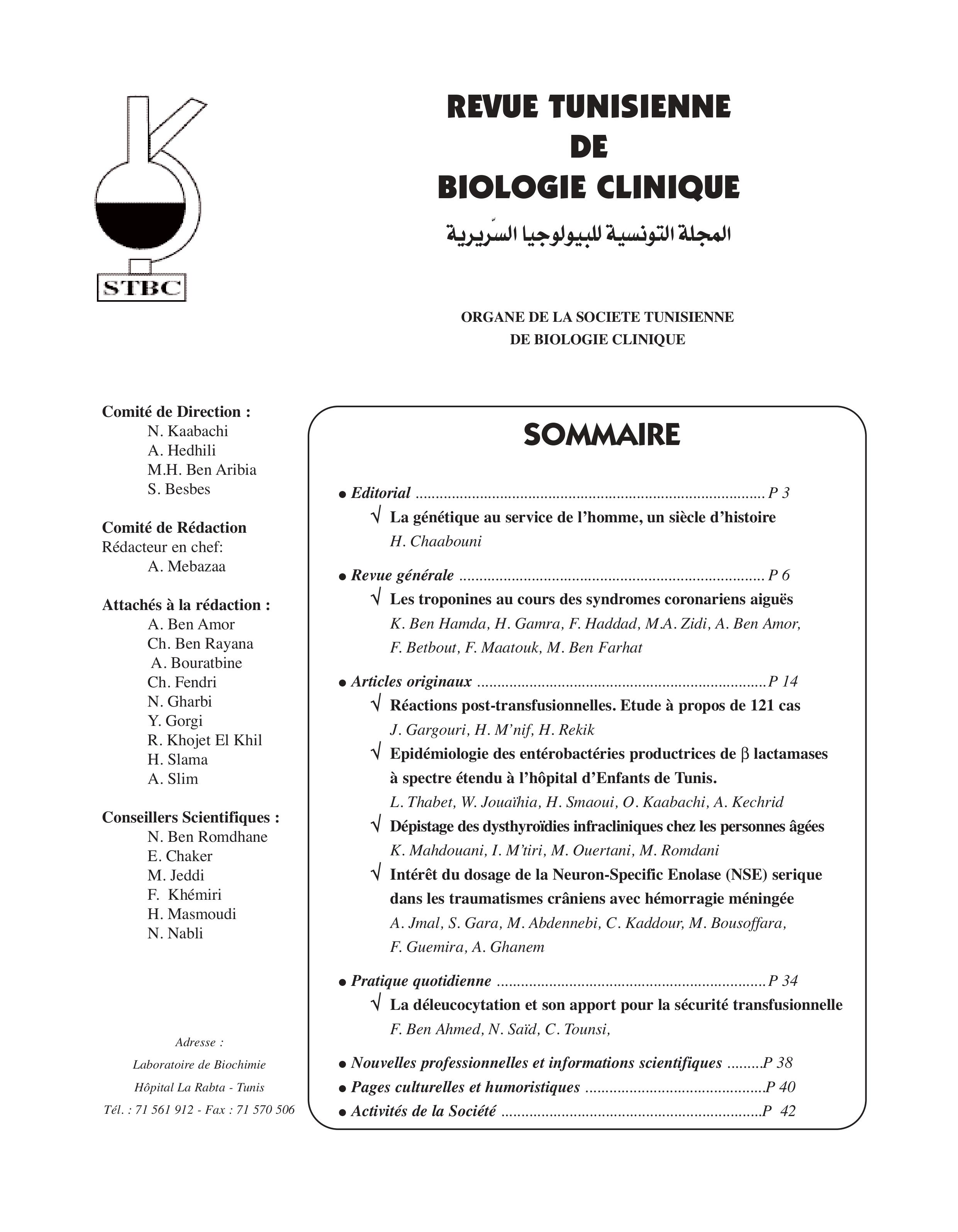Abstract
Extented spectrum bêta-lactamases enterobacteriaceae (ESBLE) play a major role in nosocomial infection and cause a public health problem. During an 18 months period (january 98-august 99), a retrospective study was carried in bacteriology laboratory in Children’s Hospital. 156 strains of extented spectrum beta-lactamases enterobacteriaceae were collected. These strains were isolated from bacteriemia in 36.5% cases, urinary tract in 38.5% of cases, respiratory tract in 8% of cases, meningitis in two cases (1%), arthritis and osteomyelitis in five cases. The production of Extented spectrum betalactamases concerned 36.5% of isolated strains of K. pneumoniae, 17.4% of K. oxytoca and 15% of Salmonella. Medical services were the most concerned by these strains(53%). Previous hospitalisation and previous use of antimicrobial agent were significantly associated with infections by ESBLE. A strategy needs to be developped to prevent the spreading of these multiresistant organisms. Limiting the use of wide spectrum antimicrobial agents and the strict observence of nursing procedures were the main important parameters to reduce ESBLE nosocomial acquisition in hospital. Awaness of the prevalence of these extented spectrum beta-lactamases is the best way to assess the quality of medical care and the prevention strategy.

This work is licensed under a Creative Commons Attribution 4.0 International License.
Copyright (c) 2003 Revue Tunisienne de BIOLOGIE CLINIQUE

